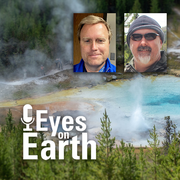New Comprehensive Geologic Map of the Moon Released
USGS Astrogeology training astronauts Meteor Crater
Close Up on Jezero Crater on Mars
Lunar Resources at Astrogeology
Learn about USGS Astrogeology's mission science in planetary critical minerals, energy, and resources
Astrogeology Science Center
Our mission is to serve the Nation, the international planetary science community, and the public in pursuit of new knowledge of our solar system. The USGS Astrogeology Science Center is a national resource for the integration of planetary geoscience, cartography, and remote sensing.






